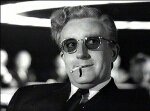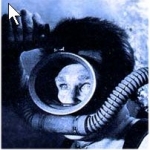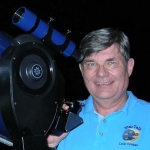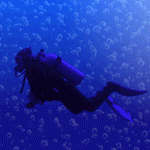CPAP and SCUBA
-
pat21784
CPAP and SCUBA
I've been searching the web for about an hour now, and I'm shocked that I haven't found an answer to my question yet. Is it possible that I've come up with a question that no one else on the internet has thought of? If so, I think that's worthy of some kind of award!
Anyway, here's my question. Does CPAP affect SCUBA diving? I'm 99% sure that breathing pressurized CPAP air while I'm sleeping will not have any affect on my dive table status, but still, I'm thinking maybe...
My concern is that breathing pressurized air causes our bodies to absorb more nitrogen than breathing regular ambient air. SCUBA air is pressurized, so is CPAP air. Any SCUBA diver knows that the nitrogen our blood absorbs during a dive can be our worst enemy. We have to ascend slowly or risk the nitrogen coming out of solution in our blood and causing problems (decompression sickness, or DCS). The length of time we can remain at depth on any given dive depends on how much nitrogen we've absorbed during previous dives. So, after a night of breathing with my CPAP, have I then absorbed more nitrogen than another diver who doesn't use CPAP? Do I then have to adjust my dive times accordingly?
There's gotta be some CPAPpers out there who are also divers, who have thought of this before... right?
Anyway, here's my question. Does CPAP affect SCUBA diving? I'm 99% sure that breathing pressurized CPAP air while I'm sleeping will not have any affect on my dive table status, but still, I'm thinking maybe...
My concern is that breathing pressurized air causes our bodies to absorb more nitrogen than breathing regular ambient air. SCUBA air is pressurized, so is CPAP air. Any SCUBA diver knows that the nitrogen our blood absorbs during a dive can be our worst enemy. We have to ascend slowly or risk the nitrogen coming out of solution in our blood and causing problems (decompression sickness, or DCS). The length of time we can remain at depth on any given dive depends on how much nitrogen we've absorbed during previous dives. So, after a night of breathing with my CPAP, have I then absorbed more nitrogen than another diver who doesn't use CPAP? Do I then have to adjust my dive times accordingly?
There's gotta be some CPAPpers out there who are also divers, who have thought of this before... right?
-
jasoncostello
- Posts: 7
- Joined: Tue Feb 28, 2012 7:57 am
- Location: NYC Metro
Re: CPAP and SCUBA
Let me qualify by saying I'm not a diver, but my understanding of nitrogen absorption while diving comes not from the pressurized air one is breathing, but from the pressure of the water around you the deeper you go. I wouldn't think they are related.
-
Wulfman...
Re: CPAP and SCUBA
That's not logical, Captain.pat21784 wrote:I've been searching the web for about an hour now, and I'm shocked that I haven't found an answer to my question yet. Is it possible that I've come up with a question that no one else on the internet has thought of? If so, I think that's worthy of some kind of award!
Anyway, here's my question. Does CPAP affect SCUBA diving? I'm 99% sure that breathing pressurized CPAP air while I'm sleeping will not have any affect on my dive table status, but still, I'm thinking maybe...
My concern is that breathing pressurized air causes our bodies to absorb more nitrogen than breathing regular ambient air. SCUBA air is pressurized, so is CPAP air. Any SCUBA diver knows that the nitrogen our blood absorbs during a dive can be our worst enemy. We have to ascend slowly or risk the nitrogen coming out of solution in our blood and causing problems (decompression sickness, or DCS). The length of time we can remain at depth on any given dive depends on how much nitrogen we've absorbed during previous dives. So, after a night of breathing with my CPAP, have I then absorbed more nitrogen than another diver who doesn't use CPAP? Do I then have to adjust my dive times accordingly?
There's gotta be some CPAPpers out there who are also divers, who have thought of this before... right?
In the first place, the CPAP air is not "pressurized" to the point where it inflates the lungs or forces air into the lungs. It is merely enough to splint the airway (nasal and/or throat) to allow one to breathe normally. So, if "normal" breathing would cause a problem with SCUBA diving, then it would be true.......but, that's not the case.
The other part is that you're not changing your pressurized altitude/depth while you're breathing/sleeping. So, that doesn't apply to the nitrogen theory.
So, don't worry about it.
Den
- bartinstine
- Posts: 17
- Joined: Sat Feb 25, 2012 11:15 am
- Location: Minnesota
Re: CPAP and SCUBA
I don't think I would be so hasty in dismissing the concern of Nitrogen in CPAP.
In Scuba Diving the air is at greater pressure to allow you to breath it with the added pressure on the outside from the water around you. I don't think the difference in pressure in the Scuba compressed air vs the water pressure around you would be greatly different then the difference in pressure from room atmosphere vs CPAP pressure.
I think it at least warrants some investigation and discussion with people that understand more about scuba diving. I have a couple of friends that Scuba dive. I'm going to ask them what their opinion would be. I also have an appointment next week for a sleep study. I'll bring it up there as well.
In Scuba Diving the air is at greater pressure to allow you to breath it with the added pressure on the outside from the water around you. I don't think the difference in pressure in the Scuba compressed air vs the water pressure around you would be greatly different then the difference in pressure from room atmosphere vs CPAP pressure.
I think it at least warrants some investigation and discussion with people that understand more about scuba diving. I have a couple of friends that Scuba dive. I'm going to ask them what their opinion would be. I also have an appointment next week for a sleep study. I'll bring it up there as well.
When I'm sad I just sing, and then I realize my voice is worse than my problems.
Re: CPAP and SCUBA
The issue with diving is that the absorption of any gas is equivalent to the atmospheric pressure. It could be possible that there would be a small effet from the CPAP, though I think the worst case scenario would only really effect you if you got up and started diving right away.
Now if you are at sea level then you experience one atmosphere of pressure. You add an additional atmosphere for each 33 feet of depth in sea water. Or based on the site below 1034 cm of water. Now from my understanding (new to CPAP) the high end of therapy is about 20 cm of pressure. Even if you went to say 30 cm of pressure, you are only at .03 additional pressure.
Now looking at the dive tables, they don't even start until 40 feet. Further after 200 minutes at 40 feet you are completely decompressed after only an hour and a half (actually a little less). Considering that is more then a full atmosphere of pressure, I would not spend much time being concerned about CPAP. You would certainly decompress in a few minutes.
http://www.scuba-doc.com/physics.htm
Now if you are at sea level then you experience one atmosphere of pressure. You add an additional atmosphere for each 33 feet of depth in sea water. Or based on the site below 1034 cm of water. Now from my understanding (new to CPAP) the high end of therapy is about 20 cm of pressure. Even if you went to say 30 cm of pressure, you are only at .03 additional pressure.
Now looking at the dive tables, they don't even start until 40 feet. Further after 200 minutes at 40 feet you are completely decompressed after only an hour and a half (actually a little less). Considering that is more then a full atmosphere of pressure, I would not spend much time being concerned about CPAP. You would certainly decompress in a few minutes.
http://www.scuba-doc.com/physics.htm
_________________
| Mask: Quattro™ FX Full Face CPAP Mask with Headgear |
| Humidifier: S9™ Series H5i™ Heated Humidifier with Climate Control |
Re: CPAP and SCUBA
if you have ever had a problem with high pressure and had to drop it back, you should NOT dive and check with a dive doctor.
If you have scar tissue in your lungs you MUST NOT dive.
If your xPAP setting is above 24 you should not dive. The same goes for any respiratory therapy
above 24 since your lung function isn't normal.
So your doing to dive. Join Dive Alert Network. Talk to them first.
Have a good dive buddy or dive master and let your diver master know your concerns.
A good dive master will have 2000 dives over in last 5 years.
A pressure at the limit (24 cmO2) is about the same as the pressure increase from going down a 700 foot hill.
Yes, it will increase you nitrogen intake by .02676% or so (if my calcs are right). You could run the calculations using
the US Navy high altitude tables and work out the numbers for a dive starting at 700 foot below sea level and then going in water. Lets say your CPAP pressure is "10" that is 10 cm of water or about 4 inches. If you keep your dive computer 4 inches below you, it will do the calculations for you. The errors in the existing tables are far greater than the changes your cpap machine will cause.
Do a dive medical before you go diving and remember, never hold your breath if you breath from a regulator and always at least bubble if there is an emergency. Make sure you are fit enough to swim for an hour before you go diving and you will be fine. Go some place like the Great Barrier Reef where you don't go deep and its even better. Or go to Cape Tribulation where the reef is in ankle deep water just check the hotel has 24x7 power for your cpap machine. Paddy from Reef Teach in Cairns has taken quadriplegic and make a wish kids diving before and with the right medical supervision, nearly anyone without lung problems can dive.
If you have scar tissue in your lungs you MUST NOT dive.
If your xPAP setting is above 24 you should not dive. The same goes for any respiratory therapy
above 24 since your lung function isn't normal.
So your doing to dive. Join Dive Alert Network. Talk to them first.
Have a good dive buddy or dive master and let your diver master know your concerns.
A good dive master will have 2000 dives over in last 5 years.
A pressure at the limit (24 cmO2) is about the same as the pressure increase from going down a 700 foot hill.
Yes, it will increase you nitrogen intake by .02676% or so (if my calcs are right). You could run the calculations using
the US Navy high altitude tables and work out the numbers for a dive starting at 700 foot below sea level and then going in water. Lets say your CPAP pressure is "10" that is 10 cm of water or about 4 inches. If you keep your dive computer 4 inches below you, it will do the calculations for you. The errors in the existing tables are far greater than the changes your cpap machine will cause.
Do a dive medical before you go diving and remember, never hold your breath if you breath from a regulator and always at least bubble if there is an emergency. Make sure you are fit enough to swim for an hour before you go diving and you will be fine. Go some place like the Great Barrier Reef where you don't go deep and its even better. Or go to Cape Tribulation where the reef is in ankle deep water just check the hotel has 24x7 power for your cpap machine. Paddy from Reef Teach in Cairns has taken quadriplegic and make a wish kids diving before and with the right medical supervision, nearly anyone without lung problems can dive.
_________________
| Mask: AirFit™ N20 Nasal CPAP Mask with Headgear |
| Humidifier: S9™ Series H5i™ Heated Humidifier with Climate Control |
| Additional Comments: Resmeds overpriced SpO2 |
Re: CPAP and SCUBA
But what if you do CPAP in a water-bed?
.
It is easy to be brave from a safe distance - Aesop
.
It is easy to be brave from a safe distance - Aesop
.
Re: CPAP and SCUBA
As a diver who recently started CPAP thearapy, here is my assessment.
My CPAP prescription is 9cm/h20. So when I am on CPAP, my pressure is the equivalent of 3.5 inches of water. Since the dive tables are built around 10ft steps, and my dive computer assumes surface interval begins when I surface past 3ft of water, the surface interval time at 3.5 inches(time on CPAP) is insignificant. Atmospheric pressure can vary by 1-2 inches of mercury based on weather changes, and our dive tables/computers have margin built in for this variation of pressure at the surface. A cm of H2O is .02 in of mercury, so any typical CPAP pressure (5 to 20cmH2O) will be a small fration of the variation allowed by the tables/computer.
So my assesment is that CPAP pressure is much too low to be significant for the dive tables.
My CPAP prescription is 9cm/h20. So when I am on CPAP, my pressure is the equivalent of 3.5 inches of water. Since the dive tables are built around 10ft steps, and my dive computer assumes surface interval begins when I surface past 3ft of water, the surface interval time at 3.5 inches(time on CPAP) is insignificant. Atmospheric pressure can vary by 1-2 inches of mercury based on weather changes, and our dive tables/computers have margin built in for this variation of pressure at the surface. A cm of H2O is .02 in of mercury, so any typical CPAP pressure (5 to 20cmH2O) will be a small fration of the variation allowed by the tables/computer.
So my assesment is that CPAP pressure is much too low to be significant for the dive tables.
_________________
| Mask: AirFit™ P10 Nasal Pillow CPAP Mask with Headgear |
| Humidifier: S9™ Series H5i™ Heated Humidifier with Climate Control |
| Additional Comments: CPAP 9cm. Hunidity Auto 82 degrees. no ramp. previous mask Swift FX, now backup |
- chunkyfrog
- Posts: 34544
- Joined: Mon Jul 12, 2010 5:10 pm
- Location: Nowhere special--this year in particular.
Re: CPAP and SCUBA
The regulator adjusts gas pressure to match ambient pressure.
This only keeps pressure in the lungs at a 'safe' level.
While you are at depth, gases will dissolve in the bloodstream, and vaporize when you ascend.
--two different places, (except for blood vessels in the lungs).
I think i was going somewhere with this; but I just got lost.
This only keeps pressure in the lungs at a 'safe' level.
While you are at depth, gases will dissolve in the bloodstream, and vaporize when you ascend.
--two different places, (except for blood vessels in the lungs).
I think i was going somewhere with this; but I just got lost.
_________________
| Mask: AirFit™ P10 For Her Nasal Pillow CPAP Mask with Headgear |
| Additional Comments: Airsense 10 Autoset for Her |
Re: CPAP and SCUBA
Thank you chunkyfrog!!
I SO needed a chuckle this morning!
Cheers,
xena
I SO needed a chuckle this morning!
Cheers,
xena
_________________
| Humidifier: S9™ Series H5i™ Heated Humidifier with Climate Control |
| Additional Comments: Dx 10/14/10. Also a T2 diabetic. High night/fasting numbers prompted a sleep study and here I am :-) |
Re: CPAP and SCUBA
As a CPAP user who has slept on a water-bed since 1973, I can tell you that I haven't once experienced nitrogen narcosisrocklin wrote:But what if you do CPAP in a water-bed?
Despite my avatar, I've only SCUBA dived once to a depth of about 20 feet with a tour group. Still, I don't see how some air being blown up your nose to keep your airway open while you sleep would cause any diving problems. Maybe we can get a big government grant to do a study $$$$$$$$$$$$$$$$
Re: CPAP and SCUBA
Tho no longer an active diver, I was (am) a PADI Rescue Diver. We studied dive physiology in depth -- no pun intended. John has it correct above. 1. CPAP pressure is miniscule in comparison with dive pressures. 2. CPAP and diving are completely compatible. Just not at the same time... . Not a concern at all unless you suffer a dive injury. Standard dive table data apply.
The OSA patient died quietly in his sleep.
Unlike his passengers who died screaming as the car went over the cliff...
Unlike his passengers who died screaming as the car went over the cliff...
Re: CPAP and SCUBA
When I was young, dumb and full of (cough), I foolishly braved cave and technical diving.
Now, the biggest hyperbaric risk I take is adjusting my CPAP from 10.4 to 10.6.
.
________________________________________________________________________________________________________________________
.
If I turbo-charged someone's CPAP, with enough pressure and no mask release, I might explode their lungs, but, unless I also pressurized the room air pressure to match, there is no way they would suffer the classic dive medicine risks: CNS / pulmonary / ocular oxygen toxicity, pulmonary barotrauma, DCS, nitrogen narcosis, etc.
.
________________________________________________________________________________________________________________________
.
Here we come, walkin'
Down the street.
We get the funniest looks from
Ev'ry one we meet.
Hey, hey, we're the Monkees
And people say we monkey around.
But we're too busy singing
To put anybody down.
Hey, hey, we're the Monkees
And people say we monkey around.
But we're too busy singing
To put anybody down.

Davy Jones (far left): 1945-2012
.
Now, the biggest hyperbaric risk I take is adjusting my CPAP from 10.4 to 10.6.
.
________________________________________________________________________________________________________________________
.
Yes, ambient pressure is the key.chunkyfrog wrote:The regulator adjusts gas pressure to match ambient pressure.
If I turbo-charged someone's CPAP, with enough pressure and no mask release, I might explode their lungs, but, unless I also pressurized the room air pressure to match, there is no way they would suffer the classic dive medicine risks: CNS / pulmonary / ocular oxygen toxicity, pulmonary barotrauma, DCS, nitrogen narcosis, etc.
.
________________________________________________________________________________________________________________________
.
I think that the sudden death of Davy Jones may have hit you hard: were we ever so young?chunkyfrog wrote:I think i was going somewhere with this; but I just got lost.
Here we come, walkin'
Down the street.
We get the funniest looks from
Ev'ry one we meet.
Hey, hey, we're the Monkees
And people say we monkey around.
But we're too busy singing
To put anybody down.
Hey, hey, we're the Monkees
And people say we monkey around.
But we're too busy singing
To put anybody down.

Davy Jones (far left): 1945-2012
.
.
It is easy to be brave from a safe distance - Aesop
.
It is easy to be brave from a safe distance - Aesop
.
Re: CPAP and SCUBA
Rocklin and CF hit the nail on the head with this one.
A dive regulator regulates the pressure of the breathing gas to the ambient pressure.
The ambient pressure at 15m(50ft) is 2.5bar or 2,549cmh2o.
I don't think you have to worry about your PAP therapy affecting your dive times at all. Even if you were on an ASV and frequently hitting pressures in the high 20's it would still not significantly affect you diving.
A dive regulator regulates the pressure of the breathing gas to the ambient pressure.
The ambient pressure at 15m(50ft) is 2.5bar or 2,549cmh2o.
I don't think you have to worry about your PAP therapy affecting your dive times at all. Even if you were on an ASV and frequently hitting pressures in the high 20's it would still not significantly affect you diving.
Canada...I can't say anything nice, so I won't say anything at all.
So many cats, so few recipes.
So many cats, so few recipes.
- DreamDiver
- Posts: 3082
- Joined: Thu Oct 04, 2007 11:19 am
Re: CPAP and SCUBA
. Only the surface area of your lungs is at pressure. Granted, that's the surface area of a football field, but the rest of your body is at ambient room pressure. Blood capillary surface far exceeds lung surface area, and blood flows too fast for there to even be negligible residual nitrogen during cpap. This is a non-story. I'm pretty sure you have more to worry about air travel after scuba diving than cpap before or after scuba diving. And unlike scuba diving, you can cpap and air travel at the same time.LinkC wrote:... CPAP and diving are completely compatible. Just not at the same time... . ...
_________________
| Mask: ResMed AirFit™ F20 Mask with Headgear + 2 Replacement Cushions |
| Additional Comments: Pressure: APAP 10.4 | 11.8 | Also Quattro FX FF, Simplus FF |



















